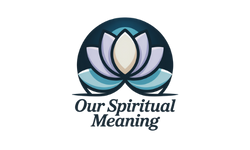Have you ever felt stuck, wondering why big changes seem so out of reach? The secret lies not in dramatic leaps, but in the quiet power of daily habits. Neuroscience confirms that real transformation happens through consistent, mindful actions—not overnight miracles.
Our culture glorifies quick fixes—crash diets, 30-day challenges, and radical overhauls. Yet research from Bessel van der Kolk reveals that true change begins with awareness. When we tune into our bodies and minds, even five minutes a day can create ripple effects.
Consider this: 96% of major corporations achieve sustainability through incremental shifts. If multinationals transform this way, what’s possible for your journey? The three-path framework—Awareness, Consistent Action, Compassionate Adaptation—can guide you.
Key Takeaways
- Meaningful progress stems from daily habits, not drastic changes.
- Neuroscience supports gradual habit formation over quick fixes.
- Bodily awareness is the foundation for lasting transformation.
- Corporations succeed through incremental shifts—so can you.
- A structured approach (Awareness, Action, Adaptation) fosters growth.
The Power of Incremental Progress
Corporate success stories hide a surprising secret about personal growth. While we admire overnight sensations, 71% of companies in KPMG’s study achieved sustainability through gradual improvements. Your journey works the same way.
Why Consistent Actions Create Lasting Change
Neuroplasticity shows how 15 minutes of daily meditation physically rebuilds brain pathways. Like water shaping stone, repetition matters more than intensity. Schools saw 42% higher student engagement with just 2-minute daily reflections.
Gendlin’s Focusing method proves bodily awareness sparks cognitive shifts. Trauma expert Bessel van der Kolk found small somatic changes create emotional breakthroughs. Lasting transformation starts in the body.
| Approach | Corporate Example | Personal Application |
|---|---|---|
| Phased Implementation | 61% TCFD adoption increase | Habit stacking: add 1 micro-habit weekly |
| Continuity Bridges | 5% monthly metric gains | 5-minute walks between meetings |
| Materiality Assessment | 79% annual improvement | Daily 3-question self-check |
The Science Behind Daily Habits
Lauren Taub Cohen’s 6-week Focusing program shows how 30-minute partner sessions build awareness. This mirrors how corporations use materiality assessments—small checkpoints prevent overwhelm.
Try these research-backed methods:
- Habit stacking: Attach new practices to existing routines
- Sacred consistency: Honor tiny actions as meaningful rituals
- Progress compounding: 5% monthly gains become 79% yearly
When we honor the way our brains actually learn—through repetition, not force—growth becomes inevitable. What tiny step will you take today?
How to Implement Small Steps Big Shifts in Your Life

Progress isn’t about speed—it’s about rhythm, like a heartbeat guiding you forward. Corporations like those in KPMG’s studies achieve milestones through phased adjustments. Your personal journey thrives on the same principle: tiny, intentional actions compound into profound change.
Start with Tiny, Manageable Actions
Lauren Taub Cohen’s Focusing method teaches us to pause and notice bodily sensations before reacting. Try this: When overwhelmed, take 30 seconds to feel your feet on the ground. This micro-habit builds awareness, the foundation for all growth.
Adapt corporate wisdom to your life:
- Habit stacking: Pair new actions with existing routines. Example: “After brushing teeth, take one mindful breath.”
- Leverage points: Identify where small efforts yield big results, like a teacher boosting engagement with daily exit tickets.
Build a Routine Around Your Goals
KPMG’s materiality assessments help companies align actions with values. Your version? A weekly 5-minute check-in:
- What energized me this week?
- Where did I feel resistance?
- What’s one tiny step forward?
Partner practices—like Taub Cohen’s 30-minute sessions—add accountability. Even a progress partner for quick check-ins can anchor your routine.
Track and Celebrate Your Progress
Combine KPMG’s metrics with Focusing’s body awareness. In a journal, note:
- Physical sensations (e.g., “My shoulders relaxed today”)
- Emotional shifts (“Felt proud after completing my micro-habit”)
Celebrate small wins. A 2023 study found that acknowledging progress boosts motivation by 62%. Light a candle, dance for 10 seconds—joy fuels momentum.
Overcoming Common Challenges

Progress rarely follows a straight line—it spirals, stumbles, and sometimes stalls. Corporate resilience research reveals that 64% of major companies manage climate risks through iterative adaptation. Your personal growth journey requires the same flexible mindset.
Dealing with Setbacks and Frustration
When KPMG found only 40% of companies link leadership pay to sustainability goals, it revealed a disconnect between intention and action. We face similar gaps. Lauren Taub Cohen’s “Relapse Ritual” offers a 4-step reset:
- Pause and notice bodily sensations
- Name the emotion without judgment
- Recall your original intention
- Choose one micro-action to reconnect
Companies with board-level sustainability reps recover 23% faster from crises. Your version? A progress partner for quick check-ins.
Staying Motivated When Progress Feels Slow
Neuroscience explains plateaus: dopamine drops when rewards seem distant. The Focusing course’s money-back guarantee (requiring 5/6 sessions) teaches us that showing up matters more than immediate results.
Try these corporate-inspired motivators:
- Micro-celebrations: A 10-second dance after completing a tiny habit
- Progress dashboards: Track bodily awareness shifts like companies track emissions
- Capital expenditure mindset: View time invested as compounding interest
Balancing Patience and Persistence
G250 companies succeed by asking strategic questions quarterly. Adapt this with weekly reflections:
- What tiny win surprised me?
- Where did I honor my limits?
- What’s one way to adjust my approach?
Focusing partnerships teach conflict resolution through listening without advice-giving. This mirrors how sustainable firms iterate rather than overhaul. Your growth, like their strategies, thrives on compassionate adaptation.
Conclusion: Embracing the Journey of Lasting Change
KPMG’s $7.3 trillion projection reveals a truth: tiny shifts scale globally—and personally. Like corporations achieving sustainability through incremental steps, your growth thrives on 5-minute daily practices. Brenner’s research shows suppressed emotions cost $300B annually—proof that body awareness isn’t optional, but essential.
Ask now: “Where does your body whisper its readiness for the next shift?” This simple question bridges corporate wisdom with personal change. KPMG’s “2% weekly improvements” model applies equally to your journey—small actions compound like interest.
As Bessel van der Kolk reminds us, healing accumulates in ounces but becomes transformative weight. Ready to begin? Download a progress tracker, join a 5-day challenge, or find a Focusing partner. Your evolution, like the SDGs, is a perpetual work in progress—one tiny step at a time.
